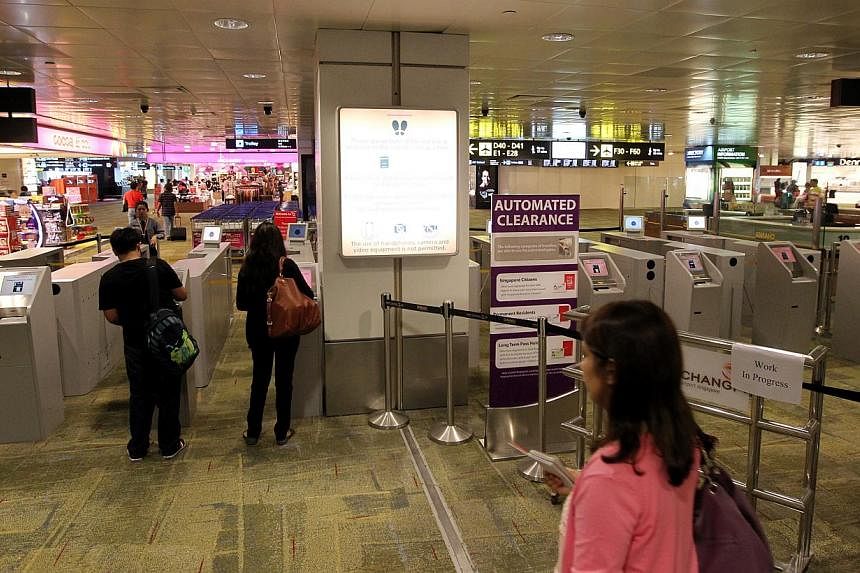Singapore may soon join a small number of countries worldwide that ask visitors to have their fingerprints taken when they arrive.
The immigration authorities are considering setting up self-service kiosks to capture the fingerprints of foreigners arriving at Changi Airport's new Terminal 4 when it opens in 2017.
The move will speed up immigration clearance and strengthen border security, according to the Immigration and Checkpoints Authority's (ICA) new operational plan, which The Straits Times obtained last week.
When contacted, the ICA confirmed the move, saying it "constantly reviews and refines" its processes to use technology to make immigration clearance faster and more efficient.
At least three countries scan the fingerprints of visitors: the United States started doing so in 2004 after the Sept 11 terror attacks of 2001.
Japan introduced fingerprint scans in 2007 and South Korea in 2012.
The ICA plan did not say how much the kiosks will cost or whether they would be implemented at other airport terminals or land checkpoints.
To prepare for the move, it approached contractors last week to retrofit an existing airport immigration counter for a trial.
Under the ICA plan, foreigners arriving at the new airport terminal will need to scan their completed immigration cards and fingerprints at self-service kiosks as soon as they arrive.
They then present their passports to immigration officers for checks.
Besides fingerprinting, foreigners could also have their photos taken or irises scanned at the kiosks.
Security expert Rohan Gunaratna supports the move to use fingerprints and other biometrics to cut down the use of stolen and forged passports or those that have been tampered with.
"In order for biometric technology to be effective, each traveller must be scanned every time he enters or exits the country," said the professor of security studies at the S. Rajaratnam School of International Studies at Nanyang Technological University.
Others, however, warned that it is important to ensure the new system works well and leads to shorter, and not longer, waits for visitors to Singapore.
The founder of local customer service consultancy Wow! Academy, Mr Bentley Williams, said the system has to be fast and efficient, and staff should be deployed to help foreigners who have problems at the self-service kiosks.
Member of Parliament Edwin Tong, deputy chairman of the Government Parliamentary Committee for Law and Home Affairs, said what was crucial was the "efficiency of the bio-scanners".
He said: "If there is a glitch in the system, there could be a significant hold-up and this would affect Changi's reputation as an ultra-efficient airport."


